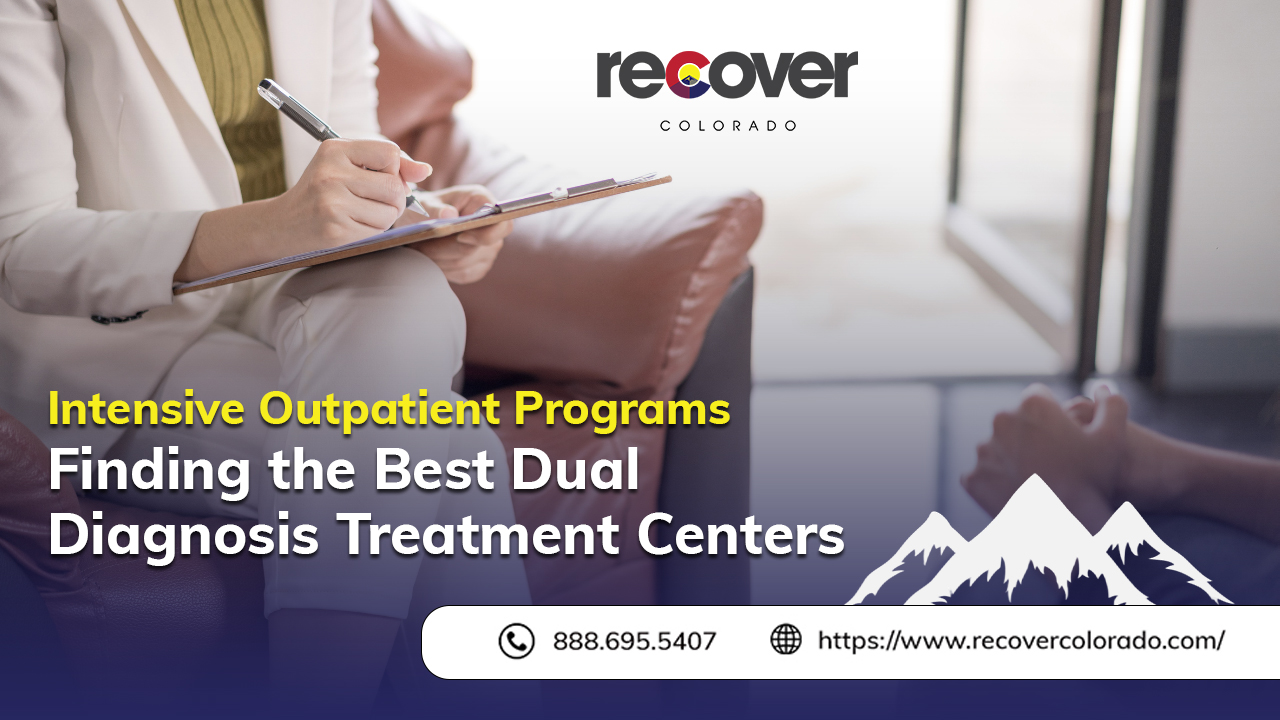Mental health and substance use disorders often go hand in hand, making treatment more complex and requiring specialized care. Dual diagnosis treatment centers cater specifically to individuals dealing with both mental health conditions and substance abuse, ensuring a holistic approach to recovery. Similarly, an intensive outpatient program (IOP) provides structured support without requiring full-time residency, making it a viable option for those balancing treatment with daily responsibilities.

Understanding Dual Diagnosis Treatment
Dual diagnosis treatment is a comprehensive approach designed for individuals dealing with both a substance use disorder and a co-occurring mental health condition such as anxiety, depression, or bipolar disorder. Addressing only one issue can increase the risk of relapse, which is why integrated care is essential. Dual diagnosis programs combine mental health counseling, medication management, behavioral therapy, and peer support to promote long-term recovery.
Since substance abuse and mental health disorders often influence each other, treating both simultaneously is critical. Conditions like depression or PTSD can lead to substance misuse, while prolonged drug or alcohol use can worsen psychiatric symptoms. Specialized dual diagnosis treatment centers ensure both aspects are managed together, improving overall treatment outcomes.
The Role of Intensive Outpatient Programs in Addiction Recovery
An intensive outpatient program for substance abuse offers structured therapy and medical support while allowing individuals to continue their daily responsibilities. Unlike residential treatment, IOPs provide a flexible approach where participants can receive care while maintaining work, school, or family commitments.
Key benefits of an outpatient rehab program include:
✔ Holistic Therapy Approaches: IOPs incorporate cognitive behavioral therapy, group sessions, and family counseling to address emotional and psychological challenges.
✔ Convenient Scheduling: Evening and weekend sessions enable participants to receive treatment without disrupting their daily lives.
✔ Supportive Transition: These programs act as a bridge between inpatient rehab and independent living, helping individuals stay on track with their recovery goals.
For those who require professional care but cannot commit to a full-time inpatient program, an outpatient substance abuse treatment plan provides a structured yet adaptable solution, ensuring continued progress in recovery.
Choosing the Best Dual Diagnosis Treatment Centers
When selecting a mental health and addiction treatment facility, several factors should be considered:
✔ Accreditation & Licensing: Choose a center that meets industry standards and holds accreditation from recognized health organizations.
✔ Expert Clinical Team: A reputable facility should have trained psychiatrists, licensed therapists, and addiction specialists experienced in dual diagnosis care.
✔ Customized Recovery Plans: The best treatment centers provide personalized programs tailored to each individual’s needs.
✔ Alternative Therapies: Look for centers incorporating wellness-based treatments such as meditation, fitness programs, and creative therapies.
✔ Long-Term Support & Relapse Prevention: A strong aftercare program, including sober living support and alumni networks, plays a crucial role in sustaining recovery.
Ongoing Support for Long-Term Sobriety
Recovery from substance abuse and mental health challenges is a continuous journey. Completing an intensive outpatient rehab program is just the beginning—ongoing therapy, community support groups, and self-care routines are essential to maintaining progress. Many treatment centers offer extended care services, including virtual counseling, alumni programs, and transitional housing, to help individuals stay committed to their recovery goals.
For those struggling with both addiction and mental health issues, seeking professional help at a dual diagnosis rehab center is a vital step toward long-term wellness. With the right treatment strategy and commitment to self-improvement, achieving a healthier and substance-free life is possible.
By choosing the right treatment plan and committing to the recovery journey, lasting sobriety and improved mental health are within reach.
